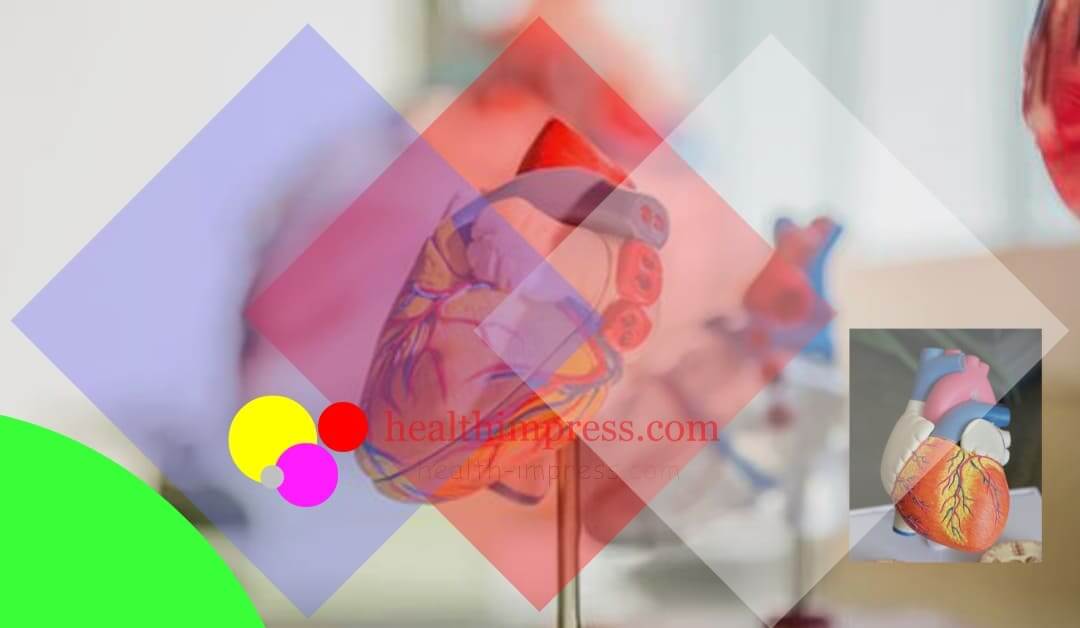General Health, Men's Health, Women's Health
How to Fight Heart Attacks with Superfoods
The risk of a heart attack should not be underestimated, and that’s why it’s important to fight heart attacks with superfoods. In a previous essay on heart attacks, I referenced a study that stated that 9 out of 10 persons who suffer a heart attack do not survive.
If for nothing else, this should serve as a wake-up call for everyone to take action. By the end of this article and in this research paper, I will describe in simple terms some various types of meals that we should all crave on a daily basis to minimize our risk of heart attacks.
Fight heart attacks with superfoods such as fatty fish:
Fatty fish, in fact, is an excellent source of lean protein. Heart attacks can be fought when we consume fatty fish such as wild salmon, mackerel, herring, haddock, catfish, cod, tilapia, and trout, among many others. These have been shown to reduce the risk of atherosclerosis and arrhythmia.
The good news is that most of them are also strong in Omega-3s, have a moderate flavor, and can be prepared healthily by roasting, grilling, baking, or sun-drying. Omega-3 fatty acids, which are included in most of these fish, have been shown to significantly lower your risk of heart disease, which is especially relevant for those with type 2 diabetes, whose risk of heart disease is already elevated.
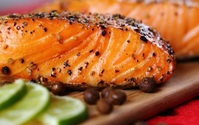
They can effectively lower blood pressure and prevent clotting, potentially lowering your chance of dying from a heart attack by one-third. The best part of it all is when you make great meals with beans, lentils, and veggies for a well-balanced meal that won’t raise your blood sugar, which is very beneficial for diabetics and diabetic-prone people.
According to cardiologist Stephen T. Sinatra, MD, author of Lower Your Blood Pressure In Eight Weeks, “Salmon includes the carotenoid astaxanthin, which is a highly potent antioxidant.” However, wild salmon should be preferred over farm-raised salmon, which may have insecticides, pesticides, and heavy metals. If you don’t enjoy salmon, other oily fish like mackerel, tuna, herring, and sardines will provide a similar boost to your heart. Experts advise eating these fish 2 to 3 times each week and not stuffing your body with large servings at a time.
Heart Attacks are Prevented with eating Oatmeal
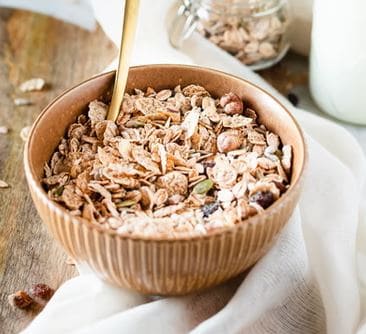
Oatmeal is a whole grain, and studies have shown that consuming a diet high in whole grains and fiber lowers the risk of diabetes by 35-45 percent. Since it’s high in fiber, which helps to lower “bad” cholesterol and improve digestion, why not fight heart attacks with superfoods.
In a previous essay on heart attacks, I referenced a study that stated that 9 out of 10 persons who suffer a heart attack do not survive. . The soluble fiber in oatmeal serves to slow down the absorption of glucose from food in the stomach.
As a result, blood sugar levels are kept low and under control. Oatmeal is best served with around 2 tablespoons of chopped pecans, almonds, or walnuts to provide healthy protein and healthy fat to your ultimate morning meal, as well as add crunch flavor. Because it is described as the comfort food vitamin powerhouse, coarse oatmeal is the healthiest of all. Start your day with a steaming bowl of omega-3 fatty acids, folate, and potassium-rich oats.
This high-fiber superfood can help keep arteries clear by lowering LDL (bad) cholesterol levels. Choose coarse or steel-cut oats over instant versions for more fiber, and add a banana to your bowl for an extra 4 grams of fiber.
Berries are beneficial to the heart.
It doesn’t matter which berry you favor — raspberries, blueberries, cranberries, raspberries, and strawberries are all high in anti-inflammatories and can help lower blood pressure and expand blood vessels, lessening your risk of a heart attack. They also lower your cancer risk. Blueberries and blackberries are particularly beneficial, but all berries are beneficial to vascular health because they are high in heart-healthy phytonutrients and soluble fiber.
Dark Chocolate Can Help You Avoid Heart Attacks

If you enjoy chocolate, I strongly advise you to seek out dark chocolate that contains at least 70% cocoa. This type of chocolate can help to lower blood pressure, reduce inflammation, and prevent blood clotting. If the cocoa content is higher, dark chocolate is especially excellent for your heart.
What I always do is get chocolate that is produced in Ghana because theirs have no artificial cocoa but pure natural cocoa.
The truth is, most of the chocolates produced in Europe and North America have been mixed with ingredients that leave the purity and natural taste of the cocoa content questionable.
Nuts can help you avoid heart attacks.
A handful of healthy nuts will not only satisfy you but also provide you with the necessary heart protection. Nuts also have vitamin E, a vital component that aids in the reduction of “bad” cholesterol levels, as well as protein fibers that are beneficial to the heart. Walnuts, for example, are high in omega-3 fatty acids and mono- and polyunsaturated fat, as are almonds and macadamia nuts. Nuts also boost the amount of fiber in your diet. Just a few spoons a day can help lower “bad” cholesterol and blood sugar levels.
Extra Virgin Olive Oil is beneficial to your heart.
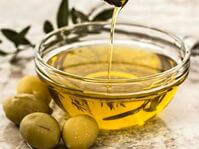
Olive oil is high in monounsaturated fats, which lowers harmful LDL cholesterol and lowers the risk of heart disease. While men in Crete had a predisposition for high cholesterol levels, in a study the results from the Seven Countries Study, which looked at cardiovascular disease incidences around the world, showed that while they had a predisposition for high cholesterol levels, they died of heart disease in relatively small numbers because their diet focused on heart-healthy fats found in olive oil. Extra virgin olive oil defends against heart disease in a variety of ways:
- Inflammation is reduced: As previously stated, olive oil protects against inflammation, which is a major cause of heart disease.
- LDL Cholesterol: Olive oil protects LDL particles from oxidative damage, which is an important step in the progression of heart disease.
- Enhances Endothelial Function: Olive oil enhances the function of the endothelium, the blood vessel lining.
- Blood Clotting: According to some studies, olive oil can help reduce undesired blood clotting, which is a common symptom of heart attacks and strokes.
- Lower Blood Pressure: One study found that olive oil dramatically decreased blood pressure and reduced the requirement for blood pressure drugs by 48 percent in persons with high blood pressure.
Our recommendation is to seek out extra-virgin oil or virgin oil varieties, as these are the least processed. If I were you, I’d quit using margarine and butter and replace them with extra virgin olive oil, even in salads.
Red Wine Has the Potential to Prevent Heart Attacks
Red wines are known for reducing fatty deposits in blood vessels, as well as aiding in detoxification and weight loss. However, wine, in any form, should be consumed in moderation. Resveratrol, according to Mayoclinic, there may be a significant element in red wine that helps prevent blood vessel damage, lowers low-density lipoprotein (LDL) cholesterol (the “bad”), and prevents blood clots.
According to some studies, resveratrol may reduce the risk of inflammation and blood clotting, both of which can lead to heart disease. If I had to drink wine on any given day, I prefer organic wine.
Non-starchy vegetables – Broccoli, Spinach, Mushrooms, and Peppers
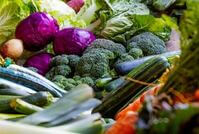
These are high in vitamins, minerals, and fiber, and are an excellent source of high-quality carbs that are beneficial to heart health. Veggies that aren’t starchy, such as Broccoli are high in vitamins, minerals, and antioxidants. These help to activate the heart and maintain appropriate blood pressure. It also has a lot of fiber.
Spinach, in combination with its stocks of lutein, foliate, potassium, and fiber, can help keep your heart in good shape.
Increasing your vegetable consumption is a great approach to give your heart the much-needed boost it requires.
In the United States, the Physician’s Health research studied over 15,000 men without cardiac diseases for 12 years. Those who consumed at least two-and-a-half servings of vegetables per day reduced their risk of heart disease by roughly 25% compared to those who did not. Each additional serving of vegetables decreased the danger by another 17%.
Avocado is beneficial to your cardiovascular system.
Avocado helps clean the arteries and lowers “bad” cholesterol levels, making it a heart booster. It is widely regarded as one of the healthiest fats due to its high content of monounsaturated fats. A diet high in monounsaturated fats and low in low-quality carbs has been demonstrated to boost heart health, which is especially essential for diabetics who are at a higher risk of heart disease and stroke.
On any given day, I would rather eat an avocado salad instead of mayonnaise or other fat- and salt-laden dressings.
“Avocados are fantastic,” Dr. Sinatra says. “They allow other carotenoids, particularly beta-carotene and lycopene, to be absorbed, which is important for heart health.” The ultimate deal includes cilantro, lime juice, and diced tomato.
Watermelon is also beneficial to your heart.
Because various components in watermelon have special benefits for heart health, it plays a vital role in vascular health. Lycopene has been shown in studies to help decrease cholesterol and blood pressure. It can also protect cholesterol from oxidative degradation.
Watermelon also has citrulline, an amino acid that may help the body produce more nitric oxide. Nitric oxide causes blood arteries to dilate, lowering blood pressure. Watermelon also contains other vitamins and minerals that are beneficial to your heart. Vitamins A, B6, C, magnesium, and potassium are among them. Watermelon contains lycopene, citrulline, and other vitamins and minerals that are beneficial to the heart.
Conclusion
What I’ve done here is provide an overview of some important meals that aid in the proper functioning of our hearts. You see, you never know when you’ll have a heart attack. As a result, it is critical that we all take efforts to lessen the danger of it occurring in the first place.
Take care!
Sources:
- Long-Term Resveratrol Supplementation as a Secondary Prophylaxis for Stroke
- 150 Healthiest Foods
- Red Wine’s Resveratrol May Help Battle Obesity
- 10 Superfoods for Heart Health
- Foods That Can Save Your Heart

